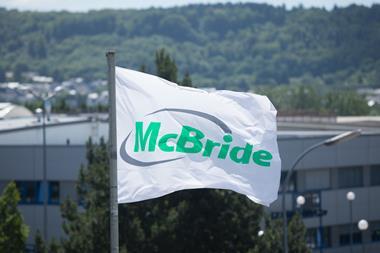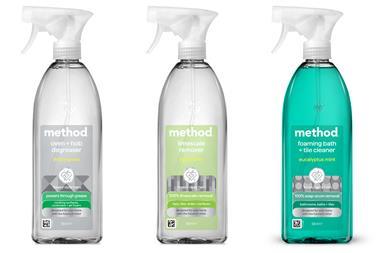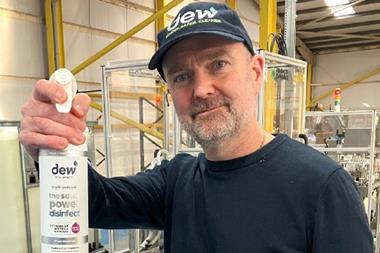The swine flu epidemic may not have been as devastating as initially predicted but that didn't stop products with a clear "germ kill" message benefiting from the paranoia that swept the nation.
Reckitt Benckiser's Dettol brand was the obvious winner, with sales up 15.6% to £47.5m last year, but other brands also enjoyed signficant sales uplifts.
According to Kimberly-Clark, sales of facial tissues rose 10% in May when the government launched its 'Catch It. Kill It. Bin It.' ad campaign. Its own ad campaign for Kleenex, which coincided with the government ads, featured the same strapline.
"The direct impact of swine flu was minimal as there were few incidences in the end," says Kleenex marketing manager Marc Zander. "However, indirectly the virus led to the category gaining more featured space in supermarkets. Visibility is everything for facial tissues, particularly pocket packs."
Kleenex upped sales 6.6% to £93.5m in the year to October [Nielsen], boosted by its anti-viral range, as well as pocket packs and mansize. By moving mansize tissues into a small box at the end of 2008, Kleenex added £2.4m to the products sales last year. "That makes the small box the biggest innovation in facial tissues in 10 years," says Zander.
In December, Kleenex launched its first pocket pack aimed at men an ultra-thin format. This was followed by what Kleenex claims is the softest facial tissue that has ever been made, rolling out now. A 6.5 million-pack sampling campaign, costing £2.5m, kicks off in March.
The increased focus on "hygienically clean" that emerged as a result of swine flu will continue to grow the category, believes Unilever category leader for household cleaning Ian Toft. "We'll see more innovation and growth within anti-bacterial and getting consumers to understand the benefits of those products."
Focus On Household
Reckitt Benckiser's Dettol brand was the obvious winner, with sales up 15.6% to £47.5m last year, but other brands also enjoyed signficant sales uplifts.
According to Kimberly-Clark, sales of facial tissues rose 10% in May when the government launched its 'Catch It. Kill It. Bin It.' ad campaign. Its own ad campaign for Kleenex, which coincided with the government ads, featured the same strapline.
"The direct impact of swine flu was minimal as there were few incidences in the end," says Kleenex marketing manager Marc Zander. "However, indirectly the virus led to the category gaining more featured space in supermarkets. Visibility is everything for facial tissues, particularly pocket packs."
Kleenex upped sales 6.6% to £93.5m in the year to October [Nielsen], boosted by its anti-viral range, as well as pocket packs and mansize. By moving mansize tissues into a small box at the end of 2008, Kleenex added £2.4m to the products sales last year. "That makes the small box the biggest innovation in facial tissues in 10 years," says Zander.
In December, Kleenex launched its first pocket pack aimed at men an ultra-thin format. This was followed by what Kleenex claims is the softest facial tissue that has ever been made, rolling out now. A 6.5 million-pack sampling campaign, costing £2.5m, kicks off in March.
The increased focus on "hygienically clean" that emerged as a result of swine flu will continue to grow the category, believes Unilever category leader for household cleaning Ian Toft. "We'll see more innovation and growth within anti-bacterial and getting consumers to understand the benefits of those products."
Focus On Household



















No comments yet